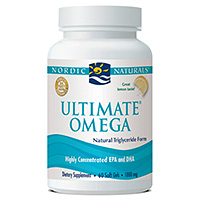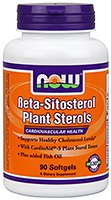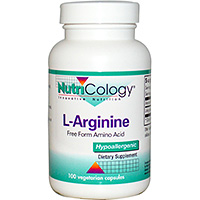

Guard against common heart conditions with research-backed #supplements (via @deliciousliving) #hearthealth
Heart diseases remain the leading cause of death in the United States, killing 600,000 people each year, even though pharmacies annually fill more than 255 million prescriptions for statins and other cholesterol-lowering drugs. Clearly, more intervention is needed, and many experts agree that natural alternatives are the place to start.
“Statins do far more harm than good,” asserts Andrew Saul, PhD, a nutritional medicine expert and the author of Doctor Yourself (Basic Health, 2012). Research shows that statins can cause muscle and liver damage, as well as fatigue, in part because they block the body’s production of coenzyme Q10 (coQ10), according to Peter Langsjoen, MD, a cardiologist in Tyler, Texas. “On the other hand, natural supplements, including omega-3 fatty acids, magnesium, and coQ10, have been repeatedly shown to be both safe and effective for people with heart diseases,” says Saul.
Of course, diet, exercise, and lifestyle are paramount. A 2013 study in the New England Journal of Medicine found that people eating a Mediterranean-style diet, which emphasizes fish, vegetables, and healthy oils, experienced a 30 percent lower risk of cardiovascular diseases.
Solid science supports the use of nutritional supplements for preventing and reversing heart diseases. In fact, so many good ones exist that it’s hard to pick just a handful. Check out top supplements for these major cardiovascular conditions.
Coronary artery disease
According to abundant research, taking omega-3s, particularly eicosapentaenoic acid (EPA) and docosahexaenoic acid (DHA), cuts the risk of coronary artery disease up to 38 percent by preventing dangerous clots, lowering blood pressure, reducing triglyceride levels, and protecting the heart from damaging inflammation. Similarly, people with high magnesium intake are one-third less likely to die of any cause, especially heart attacks, according to a 2013 study. The mineral plays hundreds of health roles and is essential for normal heart rhythm.
Dose: Take 360–800 mg EPA and 100–500 mg DHA daily; 300 mg magnesium citrate daily
High cholesterol
Red yeast rice contains monacolin K, which is chemically similar to statin drugs; numerous recent studies have found that it can safely lower total and LDL (bad) cholesterol levels, without lowering HDL (good) cholesterol. Alternatively, a 2014 study indicates that plant extracts called phytosterols and stanols block cholesterol absorption in the gut, also lowering lipid levels.
Dose: Start with 1.2 grams or more of red yeast rice to yield 10 mg monacolin K daily. Take 2–4 grams phytosterols or stanols daily.
Heart failure
Coenzyme Q10 ubiquinone, the basis of the 1978 Nobel Prize in chemistry, and its reduced form ubiquinol, are the standout nutrients for preventing heart failure, a condition caused by a weak heart muscle. This remarkable nutrient strengthens the heart and improves its ability to pump blood. Meanwhile, L-carnitine (found in protein) also strengthens the heart by burning fat as a fuel. Both nutrients work well together.
Dose: 200–400 mg coQ10 daily (if ubiquinol, take 25 percent to 50 percent less); 1–2 grams L-carnitine daily
Stroke
Strokes occur when a blood vessel in the brain either becomes blocked or ruptures. These episodes kill 130,000 Americans each year, but two nutrients can greatly reduce risk. In 2012, Swedish researchers reported that boosting magnesium intake by just 100 mg daily reduced risk of ischemic stroke (the most common type) by almost 10 percent. And a 2014 study indicates that vitamin C lowers hemorrhagic stroke risk, likely by strengthening the brain’s blood vessels.
Dose: 100–300 mg magnesium citrate daily; 1,000 mg or more vitamin C daily
Arrhythmias
Sometimes the heart’s natural rhythm goes haywire, beating erratically or abnormally fast. Arrhythmias are fairly common, and they can be life threatening. Some supplements help regulate heartbeat. Omega-3s can alleviate ventricular arrhythmias, and supplemental magnesium can reduce atrial fibrillation, a type of arrhythmia that omega-3s don’t benefit.
Dose: 360–800 mg EPA and 100–500 mg DHA daily and/or 300 mg magnesium citrate daily
Blood pressure
Hypertension can develop when blood vessels become too stiff and lose their natural elasticity. A cell-signaling molecule called nitric oxide regulates blood vessel elasticity. You can’t buy nitric oxide as a supplement (it exists as a gas in the bloodstream), but you can take its precursor, the amino acid L-arginine. Studies have found that L-arginine can lower blood pressure by a few points; even more important, it enhances overall blood vessel flexibility. Use L-arginine with caution if you are prone to herpes outbreaks because it might stimulate the virus’s activity.
Dose: 1 gram one to three times daily
Remember: It’s a good idea to talk to your health care provider before starting a new supplement.
Heart-healthy supplements to look for
Natural Factors Ubiquinol QH Active CoQ10. Coenzyme Q10 supplements have been on the market for years. A newer form, called ubiquinol, is the more biologically active form of coenzyme Q10 and appears to be better absorbed by some people.
Natural Vitality Calm. Some types of magnesium are inexpensive but not always well absorbed. Magnesium citrate is well absorbed and reasonably priced. Caution: Taking more than 2 teaspoons daily can cause a laxative effect.
Nordic Naturals Ultimate Omega. Two capsules of this high-potency supplement provide 650 mg EPA and 450 mg DHA, the two most biologically active dietary omega-3s.
Now Beta-Sitosterol Plant Sterols. Two capsules contain 400 mg of beta-sitosterol, plus two other plant sterols (campesterol and stigmasterol)—adding up to a total of 1,000 mg.
NutriCology L-Arginine. L-arginine is the precursor to nitric oxide, a chemical that regulates blood vessel flexibility—the more flexible, the better. This product provides 500 mg of L-arginine per capsule.





